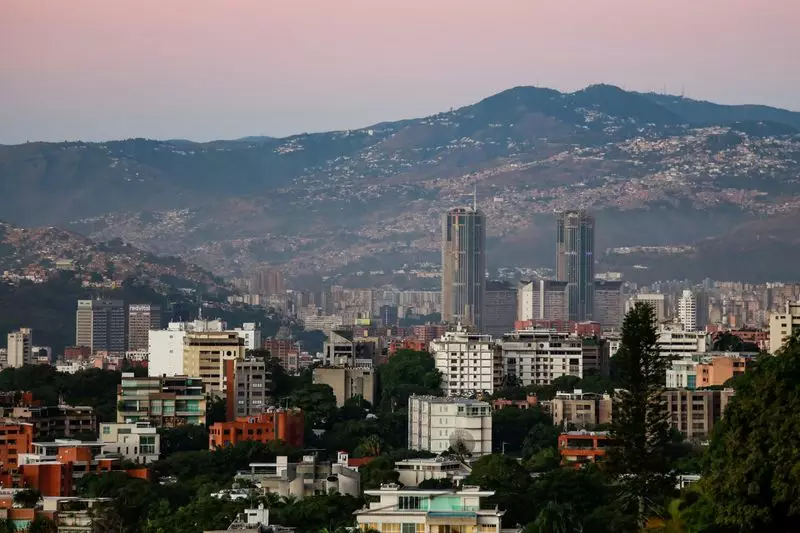The inauguration of President Nicolás Maduro for a third term has brought the spotlight back to Venezuela, amid increasing international scrutiny and condemnation. In light of the contentious electoral process that has left the nation deeply divided, the United States has escalated its punitive actions against Maduro’s administration. The addition of sanctions against eight Venezuelan officials alongside a substantially increased bounty for Maduro’s arrest underscores a growing rift. This article takes a closer look at the geopolitical implications of these actions and the continued challenges facing Venezuela.
On a conspicuous day, the Biden administration declared sanctions against several high-profile figures in Venezuela’s government, including Hector Obregon, the new head of the state oil company PDVSA, and Ramon Velasquez, the transport minister. The sanctions came amid claims from both the ruling Socialist Party and the opposition regarding the legitimacy of the recent presidential election. The U.S. reward for Maduro’s arrest was increased to $25 million, sending a clear message of discontent with the current Venezuelan leadership.
This latest wave of sanctions is not isolated; it coincided with similar punitive measures from the European Union and Canada, targeting a total of 15 Venezuelan officials. Bradley Smith, U.S. Acting Under Secretary of the Treasury, reaffirmed the Biden administration’s stance on Maduro’s regime, stating that the actions represent solidarity with the Venezuelan people who seek new leadership. This highlights a continued focus on human rights and democratic integrity from the U.S., despite the evolving dynamics under different administrations.
In stark contrast to the U.S. stance, Maduro and his supporters have consistently framed sanctions as a form of “economic warfare.” During his inauguration speech, Maduro dismissed the legitimacy of the sanctions and depicted them as futile attempts to destabilize his administration. This narrative has been a mainstay in his discourse, as he attempts to galvanize nationalistic sentiments among Venezuelans while blaming external forces for the country’s economic struggles.
Despite facing immense pressure from U.S. foreign policy, Maduro’s government has maintained its grip on power since 2013, primarily through the military’s steadfast loyalty and support from allies like China, Russia, and Iran. This resilience has allowed Maduro to deflect blame onto opposition parties and foreign adversaries, a tactic he has employed throughout his tenure.
The recent elections have been marred by allegations of fraud and widespread discontent. While the Venezuelan electoral authority and top court have backed Maduro’s claims of victory, the opposition has vehemently disagreed. Opposition leaders argue that they have adequate evidence to support claims of a landslide win for Edmundo Gonzalez, a significant rival figure who has garnered standing with international allies, including the U.S. Both Gonzalez and his supporters have accused the Maduro administration of manipulating electoral outcomes to maintain power.
International observers have raised concerns about the fairness of the vote, complicating the narrative pushed by Maduro’s government. The contentious nature of the election has amplified calls for reform and new pathways to democratic governance in Venezuela, igniting protests and generating sympathy from various global governments.
As the political landscape continues to shift, the changing guard in American leadership poses questions about future engagement with Venezuela. While the Biden administration has previously sought to re-establish diplomatic ties, the recent sanctions speak volumes about the deteriorating trust. Meanwhile, incoming President Donald Trump’s approach, marked by a significantly tougher stance during his first term, remains unclear.
The issue of immigration adds an additional layer of complexity, particularly considering that many Venezuelans have sought refuge in the U.S. amidst the ongoing crisis. The prospect of mass deportation could require cooperation with Maduro’s government, an idea fraught with challenges given the current hostilities. As recent events unfold, it remains to be seen how the relationship between the U.S. and Venezuela will evolve, and whether a path toward reconciliation will be pursued.
The implications of the recent U.S. sanctions against Venezuelan officials are profound, as they contribute to the escalating tension between the two nations. While Maduro’s administration continues to resist external pressures and blame foreign interference for its woes, the opposition’s mounting evidence of electoral fraud further complicates the already tumultuous political environment. As the Biden administration and other international stakeholders reassess their strategies, the future of Venezuela hangs in the balance—caught between aspirations for democracy and the realities of authoritarian governance.

